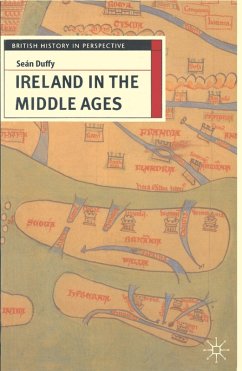
Germany in the Age of Kaiser Wilhelm II (eBook, PDF)

PAYBACK Punkte
13 °P sammeln!
This lively and concise book uses a dual approach to introduce students and non-specialists to Wilhelmine Germany (1888-1918). It surveys social, economic, political, cultural and diplomatic developments in an age of tumultuous upheaval. It also explains why historians have so often reversed the interpretative 'switches' guiding research on this period. By highlighting the breadth of historical change under Wilhelm II and the evolution of opposing viewpoints about its significance, this book provides easy access to an epoch - and a debate - characterised more by controversy than consensus.













